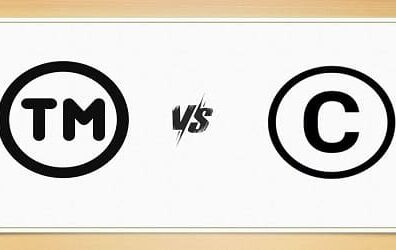A Quick Overview Of Section 8 Company- Unraveling The Process And Benefits

Introduction
As per Section 4(1) of the Companies Act, a company’s memorandum must state its name, with “Limited” for public companies and “Private Limited” for private ones. However, Section 8(1) offers a unique opportunity. It allows associations not for profit to register with limited liability under a Central Government license, exempt from using “Limited” or “Private Limited” in their names.
The name of a Section 8 company shall end with words like Foundation, Federation, Council etc. This is especially beneficial for entities engaged in charitable, educational, or other socially valuable purposes. Some examples of Section 8 companies include Reliance Foundation, Infosys Foundation, Tata Foundation, CII, FICCI, etc.
What is Section 8 Company
Under Section 8(1) of Companies Act 2013, a Section 8 company is defined as an organization whose objectives are to promote arts, commerce, science, research, education, sports, charity, social welfare, religion, environmental protection, or other similar activities goals. These entities utilize their profits to achieve their mission and do not distribute dividends to their shareholders.
A Section 8 Company is also often referred as an an organization for charitable purpose or Non Profit Organization.
Features of Section 8 Company
- Registration and Exemptions: Upon proving compliance with Section 8(5), a limited company can be licensed to omit “Limited” or “Private Limited” from its name. The company enjoys registration without stamp duty, obtaining privileges and obligations similar to a limited company, except those exempted by Central Government notification.
- Conditions and Regulations: Conditions and regulations set by the Central Government under Section 8 are binding. These may be inserted in the Memorandum, Articles, or both, and alterations require prior Central Government approval.
- Conversion and Membership: Companies under Section 8 can’t alter Memorandum or Articles without Central Government approval. Partnership firms, LLPs, Trust and Co-Operative Society can be members, and conversion to another type requires compliance with prescribed conditions.
- Conversion to One Person Company: No, a Section 8 Company cannot be incorporated or converted to One Person Company.
- Obligations and Exemptions: Licensed associations adhere to Act obligations, with exemptions granted through Central Government notifications, covering areas like shorter notice for general meetings and name publication under Section 12.
- License Revocation: The Central Government can revoke a license, mandating the use of “Limited” or “Private Limited” in the company name, stripping granted exemptions. The aggrieved association can challenge this under Article 226, with the order filed with the Registrar.
- Use of Certain Words in Names: In accordance with Rule 8(7) of the Companies (Incorporation) Rules, 2014, companies falling under Section 8 of the Act are required to have names that incorporate terms such as foundation, forum, association, federation, chambers, confederation, council, electoral trust, and similar designations.
Main Objects of Section 8 Company
- To promote commerce, art, science, sports, education, research, social welfare, religion, charity, protection of environment or any such other charitable activities and to open, establish, promote, set up, run, maintain, support, grant aid, assistance whether charitable, educational, cultural, social, scientific, spiritual, philosophical, technical/non-technical, legal, vocational training, agricultural, non-agricultural, medical, non-medical, community awareness/ development programs/ centres, institutes, facilities, centres, schemes etc. for the welfare of the society at large.
- To assist the poor and vulnerable, cherishing, preserving and upholding the sacredness and dignity of all human life, fostering charity and justice, and protecting life and preserving human dignity, to promote livelihood, poverty alleviation, skill training and development program, community health services, women empowerment, child welfare, education and literacy, human development by responding to major emergencies, fighting disease and poverty, and nurturing peaceful and just societies.
- To plan, promote, organize, manage, supervise, conduct and coordinate, directly or indirectly or in collaboration with others, whether such others be individuals or organizations of any sort of nature, to meet the charitable, educational, health, livelihood, and scientific needs of mankind including those arising out of the ravages of disaster, natural or man-made, and the incidents and consequences thereof, no matter where found in India, by the distribution of funds, food, medical, technical supplies and equipments as well as all other necessities of life.
- To work towards farmers welfare and the people connected with agricultural sector by promoting agricultural and horticulture activities for betterment of farmer’s livelihood, to assist farmers and farmers producer organizations towards welfare of the society.
- To hold, administer, allocate, distribute, expend, contribute, use and otherwise dispose of its funds and resources for any and all of the charitable, educational, literary or scientific purposes herein above referred to either directly or by allocating, distributing, expending, contributing or advancing the same to other non-profit groups, associations and organizations in this country or elsewhere for use by them for any or all of such purposes and none of the objects will be carried out on commercial basis.
Exemptions to Section 8 Companies
Being an organization for charitable purpose, a Section 8 company is provided many relaxations and exemptions. Under Section 462(1), the Central Government can issue notifications, directing the applicability of the Companies Act, 2013 to Section 8 companies with specified exceptions, modifications, and adaptations. Some of the exemptions to Section 8 Companies is given below:
Sr No. | Relevant Chapter/Section Number/ Sub section(s) in the Companies Act, 2013 | Exceptions |
1 | Section 2(24) | Secretary Definition: · The provisions of clause (24) of section 2 shall not apply. · Note: The definition of the term Secretary as defined in Section 2(24) does not apply to Section 8 Companies. |
2 | Section 2(68) | Minimum Paid-up Share Capital for Private Companies: · The requirement of Minimum paid-up share capital shall not apply. · Note: Section 2(68) defines a private company. The requirement of minimum paid-up capital does not apply to Section 8 companies. |
3 | Section 2(71) | Minimum Paid-up Share Capital for Public Companies: · The requirement of Minimum paid-up share capital shall not apply. · Note: Section 2(71) defines a public company. The requirement of minimum paid-up capital does not apply to Section 8 companies. |
4 | Chapter VII Section 96(2) | Management and Administration: · In sub-section (2), a proviso is inserted for the time, date, and place of annual general meetings. · Note: Section 96(2) covers the annual general meeting. For Section 8 companies, these details are decided beforehand by the board. |
5 | Section 101(1) | Notice of General Meeting: · In sub-section (1), “Twenty-one days” is substituted with “Fourteen Days.” · Note: Section 101(1) deals with notice of the General meeting. For Section 8 Companies, 14 clear days’ notice is sufficient. |
6 | Section 118 | Minutes of Proceedings: · The section shall not apply as a whole except for recording minutes within thirty days. · Note: Section 118 deals with minutes of proceedings. It applies to Section 8 companies only for recording minutes within thirty days. |
7 | Chapter IX Section 136(1) | Accounts of Companies: · In sub-section (1), “twenty-one days” is substituted with “fourteen days.” · Note: Section 136(1) deals with the rights of members to copies of audited financial statements. Section 8 companies may send these 14 days before the AGM. |
8 | Chapter XI Section 149 | Appointment and Qualification of Director: · Sub-sections (4), (5), (6), (7), (8), (9), (10), (11), clause (i) of sub-section (12), and sub-section (13) shall not apply. · Note: These sections relate to independent directors. They do not apply to Section 8 companies. |
9 | Section 150 | Manner of Selection of Independent Directors:
· Shall not apply. · Note: Section 150 deals with the manner of selection of independent directors, not applicable to Section 8 companies. |
10 | Proviso to sub-section (5) of section 152 | Appointment of Independent Directors: · Shall not apply. · Note: Proviso to sub-section (5) of section 152 relates to the appointment of independent directors, not applicable to Section 8 companies. |
11 | Section 160 | Right of Persons to Stand for Directorship: · Shall not apply to companies whose articles provide for the election of directors by ballot. · Note: Section 160 deals with the right of persons other than retiring directors to stand for directorship, not applicable to Section 8 companies. |
12 | Section 165(1) | Restrictions on Number of Directorships: · Shall not apply. · Note: Section 165(1) deals with restrictions on the number of directorships, not applicable to Section 8 companies. |
13 | Chapter XII Section 173(1) | Meeting of Board and its Power: · Shall apply only to the extent that the Board shall hold at least one meeting within every six calendar months. · Note: Section 173(1) mandates board meetings; for Section 8 companies, it applies to holding at least one meeting within every six calendar months. |
14 | Section 174(1) | Quorum for Board Meetings: · The quorum for board meetings shall be either eight members or twenty-five per cent of its total strength, whichever is less. However, the quorum shall not be less than two members. · Note: Section 174(1) sets the quorum for board meetings; for Section 8 companies, it’s specified differently. |
15 | Section 177(2) | Audit Committee Composition: · The words “with independent directors forming a majority” shall be omitted. · Note: Section 177(2) requires the audit committee to have a majority of independent directors, not required for Section 8 companies. |
16 | Section 178 | Nomination and Remuneration Committee: · Shall not apply. · Note: Section 178 pertains to nomination and remuneration committees, not applicable to Section 8 companies. |
17 | Section 179 | Resolutions by Circulation: · Matters referred to in clauses (d), (e), and (f) of sub-section (3) may be decided by the Board by circulation instead of at a Meeting. · Note: Section 179(3) deals with resolutions to be passed at meetings of the Board; for Section 8 companies, certain items may be decided by the Board by circulation. |
18 | Sub-section (2) of section 184 | Transaction Limit for Interested Directors: · Shall apply only if the transaction with reference to section 188 on the basis of terms and conditions of the contract or arrangement exceeds one lakh rupees. · Note: Section 184(2) prohibits the participation of interested directors. For Section 8 companies, it applies only if the transaction exceeds one lakh rupees. |
19 | Section 189 | Register of Contracts or Arrangements: · Shall apply only if the transaction with reference to section 188 on the basis of terms and conditions of the contract or arrangement exceeds one lakh rupees. · Note: Section 189 deals with the register of contracts or arrangements in which directors are interested. It applies to Section 8 companies only if the transaction exceeds one lakh rupees. |
Updated Step-by-Step Process for Registering a Section 8 Company
Individuals looking to establish a Section 8 Company or an organization for charitable purpose must adhere to the following registration process:
1. Collect Necessary Documents: Proposed subscribers should possess a valid PAN Card, Aadhar card, proof of address (Bank statement, utility bill, or phone bill) and passport-sized photographs.
2. Obtain Digital Signature Certificates (DSCs): Subscribers must acquire Digital Signature Certificates from Authorized Certification organization to sign the required E-forms.
3. Apply for Director Identification Number (DIN): Director Identification Number (DIN) for up to 3 directors can be applied through E-Form Spice + Part B. If appointing more than 3 directors, obtain additional DINs by filing E-Form DIR-3.
4. Apply for Name Reservation: Apply to the Registrar of Companies for the preferred name reservation using E-Form Spice+ Part A. DSC is not required for filing E-Form Spice+ Part A.
5. File Spice + Part B: Prepare E-Form Spice + Part B with the following attachments:
- List of Proposed Promoters
- List of Proposed Directors
- Form DIR-2: Consent to act as Director
- Form INC-14: Declaration Pursuant to Companies (Incorporation) Rules, 2014
- Form INC-15: Declaration Pursuant to Companies (Incorporation) Rules, 2014
- Income and Expenditure Statement
- Registered Office Proof: Attach a utility bill not older than 2 months with NOC from the owner. (File within 30 days of incorporation in E-form 22 if not filed in Spice + Part B).
6. File Other Forms: Alongside Spice + Part B, file the following E-Forms:
- E-Form INC-9: Declaration by Subscribers and First Directors
- E-Form INC-13: Memorandum of Association
- E-Form INC-31: Articles of Association
- INC 35- Agile Pro S: Application for Goods and Services Tax Identification Number, Employees State Insurance Corporation registration, Employees Provident Fund Organization registration, Profession Tax Registration, Opening of Bank Account, and Shops and Establishment Registration.
7. Obtain Section 8 Company License: After approval, the Registrar of Companies will issue the license for Section 8 Company, sent to the company email id provided in the forms.
8. Receive Certificate of Incorporation and Other Documents: Upon approval, the Registrar will provide the Certificate of Incorporation, ESI and EPF registration certificates, PAN Card, TAN Card, and DIN Allotment Letters. Note that these documents are emailed, and a physical copy is not obligatory.
Please note, for incorporation of Section 8 company in India the expertise of a professional is required. A seasoned professional plays a pivotal role, guiding you through the entire process to ensure a seamless experience and providing essential certifications as needed.
For a trusted consultancy in India, we highly recommend The Consultant Guru. With years of prominence in offering top-notch services related to incorporation and compliance in India, The Consultant Guru has become a leading expert in the field. Their invaluable contribution to this article further solidifies their commitment to providing comprehensive insights into the Section 8 Company registration process.
Conclusion
In conclusion, Section 8 companies serve as beacons of social change, leveraging legal provisions to make a positive impact. By understanding the benefits, compliance requirements, and unique features of Section 8 entities, stakeholders can navigate the non-profit landscape with clarity and purpose.
Follow Us
Keep Yourself Updated By Following Us




